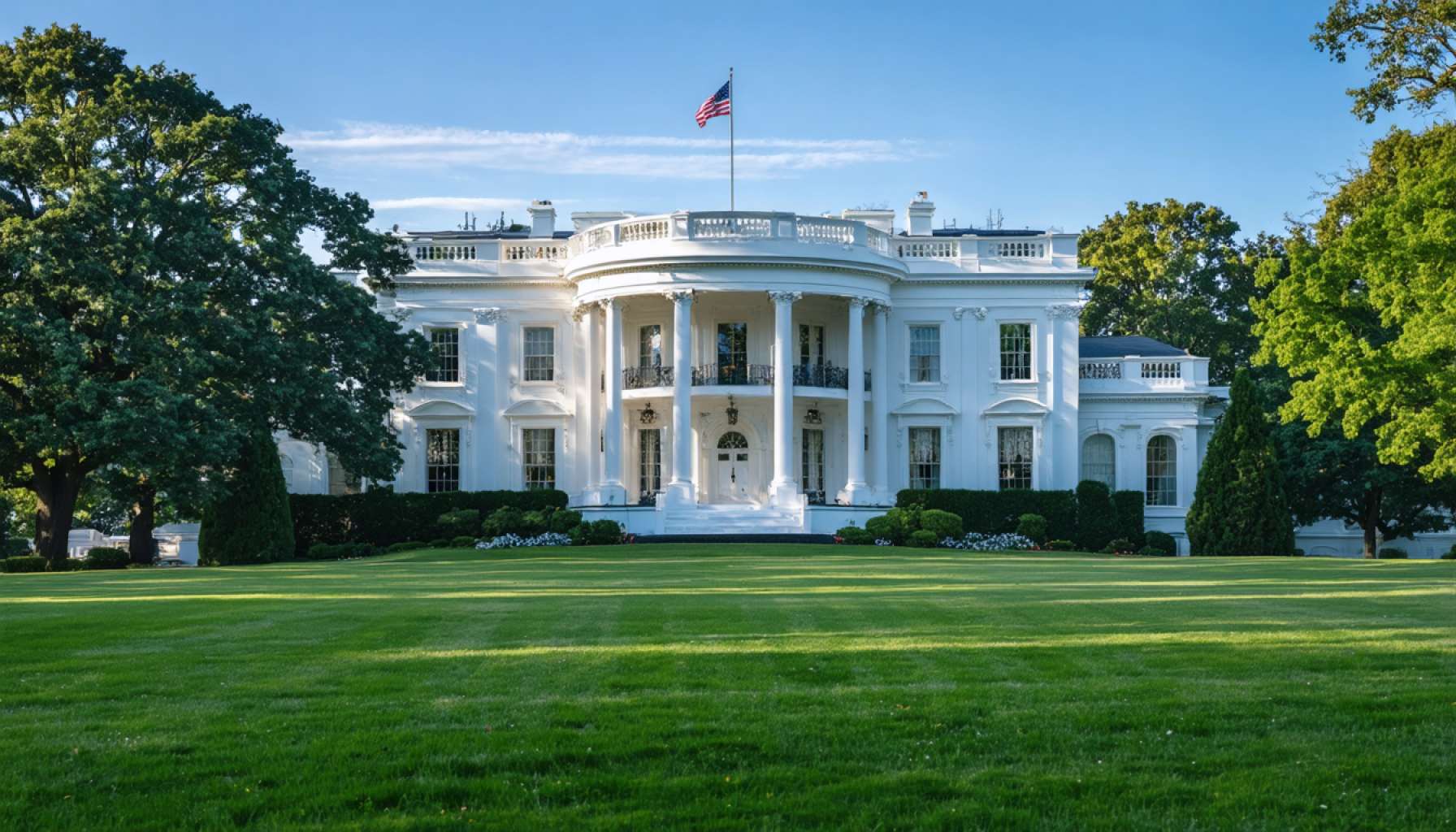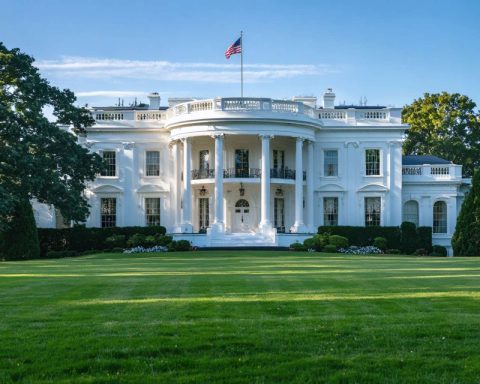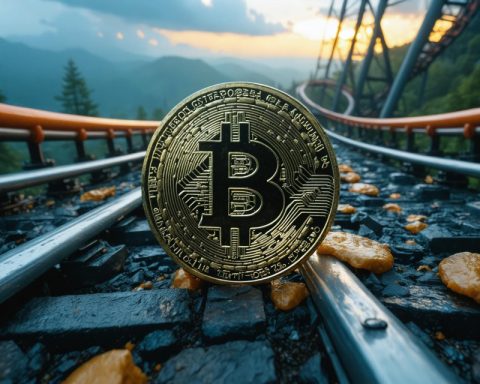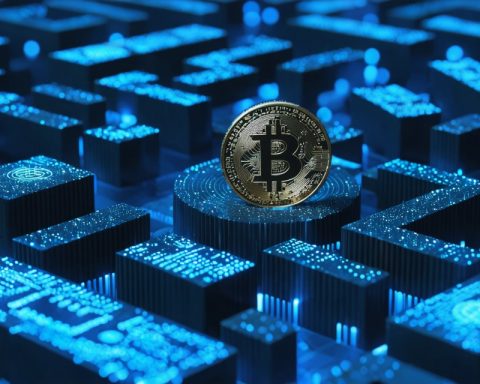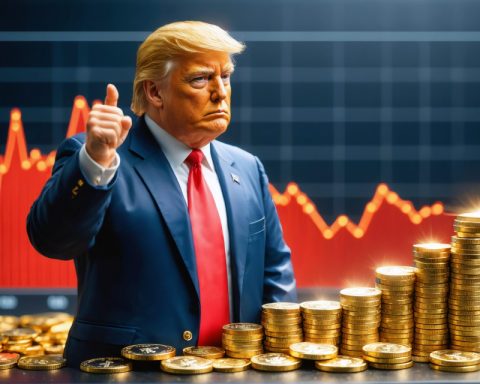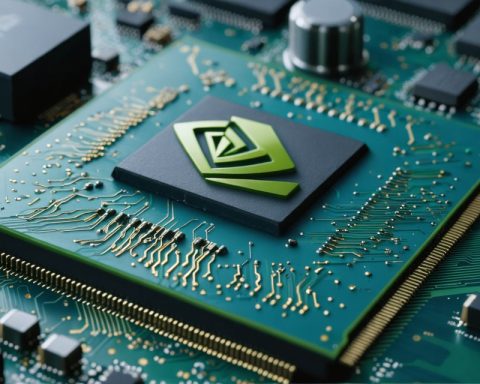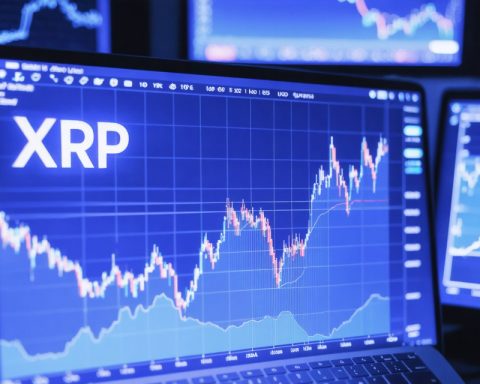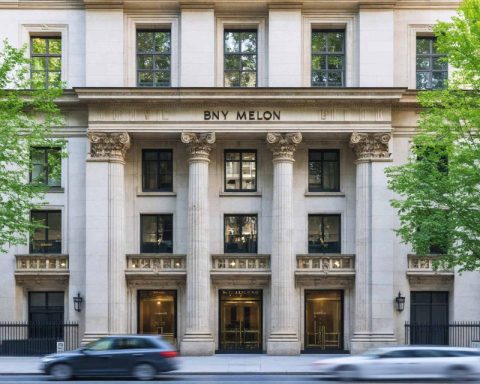- Mark Zuckerberg, Meta CEO, has purchased a $23 million mansion in Washington, D.C.’s Woodland Normanstone neighborhood, strategically positioning himself within the political heart of America.
- The acquisition sparks discussions about the growing intersection of Silicon Valley power and U.S. policy-making, amid Zuckerberg’s aims to address “policy issues related to American technology leadership.”
- Located just 12 minutes from the White House, the residence symbolizes Zuckerberg’s alignment with political influence and proximity.
- The trend of tech moguls buying in D.C. continues, with figures like Jeff Bezos and David Sacks already establishing residences in this influential area.
- The increasing presence of tech titans in D.C. poses economic challenges to local residents and federal employees, highlighting a shifting landscape.
A flurry of speculation has enveloped Washington, D.C.’s elite Woodland Normanstone neighborhood, where whispers of mystery surrounded a recent high-profile real estate acquisition. Underneath the district’s sprawling canopies, behind a stately façade of red brick and classic architecture, the grand estate recently changed hands in an all-cash deal.
The buyer? None other than Mark Zuckerberg. The Meta CEO, with a knack for precise moves in both digital and physical domains, discreetly entered the political heart of America through a $23 million purchase—a strategic move that’s sparked debates about the mingling of Silicon Valley power and the corridors of U.S. policy-making.
Flight-tracking enthusiasts noted Zuckerberg’s private jet descending into Dulles Airport, unmistakably aligning with the stir of activity enveloping the mansion. Speculation simmered until Meta, the tech giant he commands, confirmed the acquisition. The rationale, they disclosed, echoed with purposeful intentions: proximity for Zuckerberg as Meta delves deeper into “policy issues related to American technology leadership.”
The residence, a modern farmhouse-style mansion, is ideally situated just a brief 12-minute drive from the White House, silently nodding to the gravitational pull of political influence. It’s a move that intertwines private living with policy-shaping potential—a testament to Zuckerberg’s strategic foresight.
Zuckerberg isn’t alone in this exclusive enclave. The halls of American political power steadily draw the echelons of technological wealth like moths to a flame. From Jeff Bezos, who in 2016 took hold of a similarly opulent Kalorama estate, to PayPal co-founder David Sacks, who’s crafting his narrative as the White House’s crypto and AI advisor, the narrative is clear. D.C.’s stately homes are no longer merely residences; they are the new command centers for tech luminaries.
This trend isn’t lost on the city’s longtime residents. While the affluent escalate their stakes in political proximity, the region’s fabric bears the strain. Federal employees, once secure in their roles, now face uncertain prospects. The swirl of economic change, accelerated by Elon Musk’s Department of Government Efficiency, echoes through the lives of thousands who wonder what the next fiscal shift might bring.
In sharp contrast, Zuckerberg’s new abode stands resilient and unyielding. It’s a poignant reminder of the dual realities in D.C. as technology titans carve their niches in the halls of American power. For those like Zuckerberg, these investments speak of influence and proximity, the new currency in a world where technology and governance increasingly intersect. Meanwhile, for the many who dwell in the outskirts of these developments, each brick laid is a reminder of the shifting landscape wrought by those who shape more than just the digital frontier.
In this dance of politics and power, the mansion stands as a symbol—a physical manifestation of ambition that hints at the confluence of technology’s reach and political closeness. In Washington, D.C., these mega-moves remain an enduring testament to the embrace of influence, the threads of ambition binding ever closer.
The Secret Moves of Tech Titans in DC: What Zuckerberg’s $23M Mansion Means for the Future
Silicon Valley Meets the Capital: The Real Implications of Zuckerberg’s New Acquisition
Mark Zuckerberg’s recent purchase of a $23 million mansion in Washington, D.C.’s elite Woodland Normanstone neighborhood is more than a simple real estate transaction. It signals an increasingly strategic mingling of technological influence with political proximity, a trend that is reshaping the landscape of power in the United States.
The Power of Proximity: Why D.C.?
1. Access to Policy Makers: Being close to the political epicenter of the U.S., Zuckerberg ensures that Meta can directly influence emerging policies affecting technology companies.
2. Networking Opportunities: Close proximity to other tech luminaries and policymakers facilitates high-level engagements that can shape the direction of both political and technological landscapes.
3. Brand Positioning: Owning a high-profile property in an influential neighborhood positions Zuckerberg as a key figure not just in technology but also in the political arena.
The Trend of Tech Giants in D.C.
The acquisition by Zuckerberg is part of a broader movement among tech magnates to plant roots near Washington, D.C. This trend is evidenced by:
– Jeff Bezos: Opened a new chapter by purchasing a mansion in the Kalorama area, further blending the Amazon empire with U.S. political affairs.
– David Sacks: Active in government circles, advising on crypto and AI initiatives, demonstrating how tech leaders are influencing policy decisions.
Market Forecasts & Industry Trends
With the influx of tech wealth into D.C., the real estate market for luxury properties is seeing a notable uptick.
– Real Estate Appreciation: High demand for prime properties suggests an upward trend in real estate values in areas favoring political exponents.
– Economic Shifts: As tech becomes an essential pillar in the policy-making arena, ancillary industries, such as lobbying and consultancy, are set to grow.
The Impact on Local Residents
This shift carries implications for D.C. residents:
– Displacement Concerns: Rising property values can lead to higher living costs, potentially pushing out lower-income families and altering community dynamics.
– Economic Opportunities: The influx of tech giants could create new job opportunities within tech-policy sectors.
Real-World Use Cases: Leveraging the D.C. Connection
Tech companies can benefit immensely by having a physical presence close to U.S. policymakers:
– Regulatory Influence: Direct engagement with lawmakers can help shape favorable tech legislation.
– Public-Private Partnerships: Opportunities to collaborate on national projects, such as smart city initiatives or digital infrastructure development.
Pros & Cons Overview
Pros:
– Enhanced ability to influence tech-related policies.
– Increased networking capabilities.
– Higher brand prestige.
Cons:
– Potential public scrutiny over influence protection.
– Possible local pushback regarding gentrification and displacement.
Actionable Recommendations
For tech companies considering a similar move:
1. Evaluate Political Synergies: Understand how being close to the capital can align with your company’s objectives.
2. Engage Locally: Develop programs that contribute positively to the local community to mitigate any potential negative impacts of gentrification.
3. Leverage Proximity: Use proximity strategically to influence policy, not just for optics.
Conclusion
The intersection of technology and politics is becoming increasingly evident as leaders like Mark Zuckerberg make significant real estate moves within Washington, D.C. Meta is not only making strategic investments but setting a precedent for the industry. As this trend continues, both tech giants and local communities must navigate the complexities it brings to the socio-economic landscape.
For more insight and updates on technology and politics, visit Politico.

